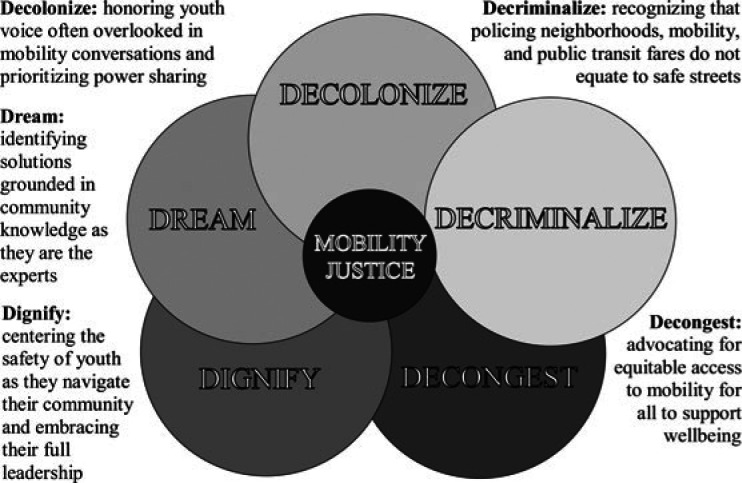"No One Should Feel Like They're Unsafe": Mobility Justice Photovoice as a Youth Advocacy Tool for Equitable Community Mobility.
IF 1.3
4区 医学
Q3 FAMILY STUDIES
引用次数: 2
Abstract
Mobility is an often overlooked social determinant of health that broadly affects people of color's health. This study aimed to examine personal and community mobility challenges and opportunities among youth of color and partner to advance equitable community mobility. We conducted a community-based participatory research photovoice study using mobility justice principles from November 2020 to May 2021 with 10 youth of color from South Seattle, Washington. We conducted thematic content analysis of verbatim transcripts. Youth recommended infrastructure changes and free transit to facilitate safe, accessible mobility. Youth reported feeling vulnerable riding public transit alongside people experiencing mental health issues, while recognizing the dangers police can bring to people with mental health challenges and/or communities of color. They emphasized the importance of youth voice and intergenerational community discussions to inform policy making. We coorganized an online forum with youth to exchange ideas for advancing equitable mobility with their community and city leaders. Youth expressed feeling empowered and deepening dedication to mobility justice. Leaders should implement policy and infrastructure changes to enhance equitable mobility by incorporating youth and mobility justice principles in decision-making processes, pay youth for their time, employ facilitators of color, and offer technology support.



“没有人应该觉得他们是不安全的”:流动正义Photovoice作为公平社区流动的青年倡导工具。
流动性是一个经常被忽视的社会健康决定因素,它广泛影响着有色人种的健康。本研究旨在探讨有色人种青年在个人和社区流动性方面面临的挑战和机遇,并与合作伙伴一起促进公平的社区流动性。我们于2020年11月至2021年5月对来自华盛顿州南西雅图的10名有色人种青年进行了基于社区的参与式研究,使用流动性正义原则进行了照片语音研究。我们对逐字抄本进行了专题内容分析。青年建议改变基础设施和免费交通,以促进安全、便利的出行。年轻人报告说,与有心理健康问题的人一起乘坐公共交通工具时,他们感到很脆弱,同时认识到警察可能给有心理健康挑战的人和/或有色人种社区带来危险。他们强调了青年声音和代际社区讨论对政策制定的重要性。我们与青年共同组织了一个在线论坛,与他们的社区和城市领导人就促进公平流动交换意见。青年们表达了被赋予权力的感觉和对流动正义的不断深化的奉献。领导人应实施政策和基础设施改革,通过将青年和流动性正义原则纳入决策过程,加强公平的流动性,支付青年的时间,雇用有色人种辅导员,并提供技术支持。
本文章由计算机程序翻译,如有差异,请以英文原文为准。
求助全文
约1分钟内获得全文
求助全文
来源期刊

Family & Community Health
Multiple-
CiteScore
2.70
自引率
4.30%
发文量
69
期刊介绍:
Family & Community Health is a practical quarterly which presents creative, multidisciplinary perspectives and approaches for effective public and community health programs. Each issue focuses on a single timely topic and addresses issues of concern to a wide variety of population groups with diverse ethnic backgrounds, including children and the elderly, men and women, and rural and urban communities.
 求助内容:
求助内容: 应助结果提醒方式:
应助结果提醒方式:


